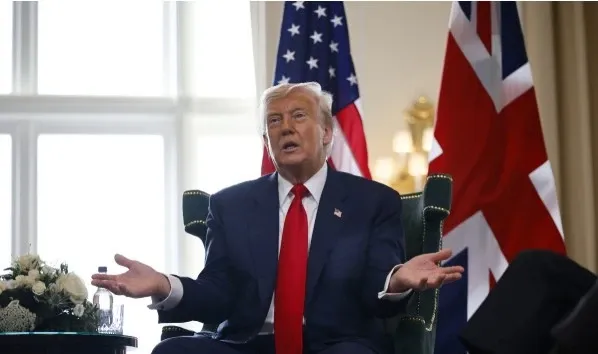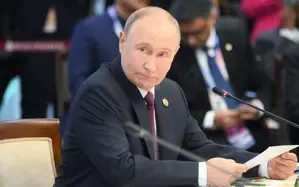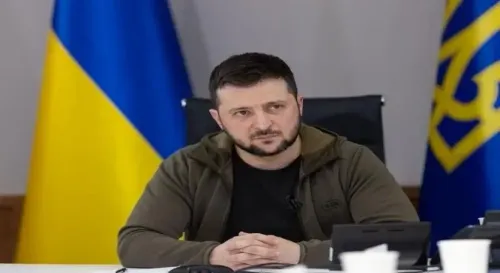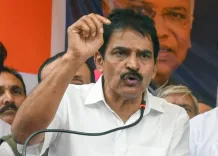Has Trump Reaffirmed His Commitment to Safeguard the Korean Peninsula?

Synopsis
Key Takeaways
- Trump reaffirms commitment to the Korean Peninsula amidst ongoing threats.
- American and South Korean forces maintain a strong alliance.
- July 27 is a day to honor the sacrifices of American troops in the Korean War.
- Trump recalls crossing the Demilitarized Zone in a historic meeting with Kim Jong-un.
- Policy of peace through strength is emphasized for future diplomacy.
Seoul, July 29 (NationPress) US President Donald Trump has reaffirmed his country's unwavering commitment to protect the Korean Peninsula, highlighting the strong bond between the two nations in the face of communism's threats in the region.
Trump's statement came on the heels of South Korea commemorating the July 27 anniversary of the armistice that concluded the 1950-53 Korean War.
In 2017, Trump designated July 27 as a national day to pay tribute to the American forces who served in the Korean War, issuing presidential messages annually during his initial term, according to Yonhap news agency.
“Despite the ongoing threats posed by communism in Asia, American and South Korean forces stand united in an unbreakable alliance,” Trump stated in a message released by the White House on Monday (US time).
“With my Administration's foreign policy focused on peace through strength, we remain steadfastly committed to defending the Korean Peninsula and collaborating for the essential goals of safety, stability, prosperity, and peace.”
Over 36,000 Americans lost their lives in the conflict that saw United Nations-backed forces confront an invading North Korea, supported by the Soviet Union.
“We honor the heroes who fought and died in Korea to ensure that freedom prevails both within our borders and beyond. We pledge to enhance our military, assist our veterans, and remain resilient against tyranny,” Trump mentioned.
Trump also reflected on the historic moment in June 2019 when he became the first sitting US president to cross the Demilitarised Zone separating the two Koreas, where he met with North Korean leader Kim Jong-un.
“My first Administration also implemented a maximum pressure strategy and enforced sanctions on North Korea aimed at negotiating denuclearization,” he added.









